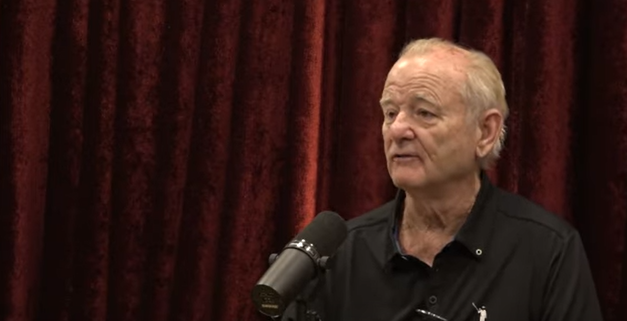Hollywood legend Bill Murray didn’t hold back during his recent appearance on The Joe Rogan Experience, taking direct aim at renowned journalist Bob Woodward. The longtime Saturday Night Live star expressed deep skepticism about Woodward’s credibility after reading only a few pages of Wired: The Short Life & Fast Times of John Belushi, the 1984 book detailing Belushi’s tragic downfall.
Woodward, widely known for his role in uncovering the Watergate scandal, based Wired on interviews with 217 people, including Belushi’s widow, Judith Belushi Pisano, SNL castmate Dan Aykroyd, and fellow actors like Chevy Chase and Robin Williams. The book was marketed as a deeply researched investigation into the dark side of Hollywood, but Murray wasn’t buying it.
“When I read Wired—the book written by, what’s his name, Woodward—about Belushi, I read like five pages, and I went, ‘Oh my God. They framed Nixon,’” Murray said, referring to Woodward’s past investigative work. The veteran comedian, who shared a close bond with Belushi, suggested that if Wired misrepresented his friend’s life, then Woodward’s previous work—including his reporting on former President Richard Nixon—might not be as airtight as it seemed.
Murray didn’t mince words about his reaction to the book, admitting that while he hadn’t read the entire thing, the portions he did see were enough to convince him it wasn’t worth his time. “I acknowledge I only read five pages, but the five pages I read made me want to set fire to the whole thing,” he added. “If he did this to Belushi, what he did to Nixon is probably soiled for me, too.”
Woodward’s book remains one of the most controversial biographies in Hollywood history. Some critics have praised its depth, while others, including Belushi’s family and close friends, have condemned it as a one-sided portrayal that fixated on the comedian’s struggles rather than his talent and legacy.
Murray’s comments are the latest in a long history of pushback against Wired, which has been widely debated for decades. But his remarks also raise a broader question—if one of America’s most famous investigative journalists got this story wrong, what does that say about the rest of his reporting?

